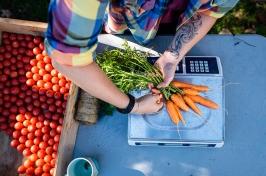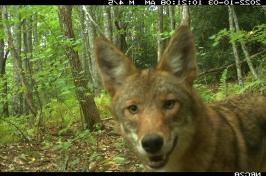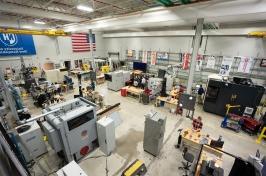The USDA has announced $5.5 million in grant funding through the Agriculture and Food Research Initiative (AFRI) to support innovative agricultural production systems research, including a project by University of New Hampshire researchers who will investigate ways to adapt cropping systems for increasingly variable weather. The UNH project, led by Rich Smith, a professor in the department of natural resources and the environment, and Natalie Lounsbury, a research assistant professor in the department of agriculture, nutrition, and food systems, will focus on how alternative crop row orientation and spacing strategies affect the amount of light or solar radiation plants can absorb and how these strategies can be combined with innovative cover cropping approaches like interseeding to improve soil moisture dynamics, weed suppression and soil health.
The research will address climate change-related challenges farmers face, such as variable precipitation and increased weed pressure. In the Northeast, extreme precipitation events have increased by 71 percent from the mid-1990s to the 2010s, heightening the risks of both summer droughts and excess moisture. Higher temperatures and elevated CO2 levels are predicted to increase weed competitiveness and reduce herbicide efficacy, further stressing the need for integrated weed management. In addition to research that will be conducted in New Hampshire, the UNH team will work with researchers at North Carolina State University to leverage an extensive national on-farm dataset from the Precision Sustainable Agriculture Network to identify the effects of row orientation on crop yields, soil moisture and weed suppression across different environmental conditions and under different cover crop management.
“It's crucial to understand how we can adapt our farming practices to mitigate the impacts of climate change,” said Smith, a scientist with the New Hampshire Agricultural Experiment Station (NHAES), whose Station research has focused on cover crop management in the northeast U.S. “By examining the interactions between crop row orientation and cover cropping, we hope to uncover new insights that will help farmers increase productivity while preserving essential natural resources.”
The four-year study, which will take place at UNH’s Kingman Research Farm, will measure crop yield, soil moisture, weed suppression and other agronomic and soil health variables, with continuous monitoring of light and soil conditions using wireless sensors.
According to Lounsbury, “Continuous monitoring of critical variables, like photosynthetically active radiation, soil moisture and temperature will provide insight into the extent to which altering row orientation can facilitate unique cover cropping practices, like interseeding into a standing crop, and how much these practices affect the climate-readiness of the cropping system.”
This study complements Smith and Lounsbury’s NHAES projects, which investigate the potential of interseeding cover crops into standing row crops and enhancing ecosystem services. The findings from the AFRI-supported study will provide valuable insights into optimizing cover cropping strategies, which will inform and enhance the NHAES project’s efforts to promote diversified production systems and improve environmental quality within New Hampshire's agriculture industry. By integrating multiple sustainable, agroecological practices, this portfolio of scientific works is intended to provide farmers with tools to reduce dependence on chemical inputs, conserve water and increase resilience to climate extremes.
“Supporting regional farmers with practical, research-based solutions is at the heart of this work,” Smith concluded. “We are committed to helping farmers adopt sustainable practices that will not only improve their yields but also contribute to the overall health of our agricultural ecosystems.”
On the UNH Extension website, read Cover Crops in NH –Looking Back, Looking Forward and Cover Cropping for the Home Garden [fact sheet] to learn more about cover cropping practices in New Hampshire.
This material is based on work supported by the NH Agricultural Experiment Station through joint funding from the USDA National Institute of Food and Agriculture and the state of New Hampshire.
-
Written By:
Nicholas Gosling '06 | COLSA/NH Agricultural Experiment Station | nicholas.gosling@3588612.com
























































